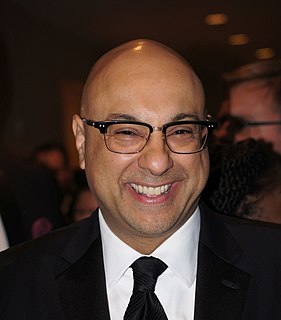A Quote by Brit Hume
We've had a series of major news stories that have brought in viewers who either were sampling to see what else was available or were normal news watchers. The Florida recount and the end of the election was a huge development. And then 9/11 came along.
Related Quotes
Now your kids can't escape. Thirteen-year-olds back then, if they didn't watch the evening news, they didn't see news. If they didn't watch the 6:30 or seven p.m. news, they didn't see news. Today younger people have much more access to that kind of hard news than you did when you were 13 back then.
I'm confused about who the news belongs to. I always have it in my head that if your name's in the news, then the news should be paying you. Because it's your news and they're taking it and selling it as their product. ...If people didn't give the news their news, and if everybody kept their news to themselves, the news wouldn't have any news.
It used to be, if you were a reporter, you wrote a story and then you moved on to the next one. We were used to people coming to the New York Times. We waited for them to turn on our website or to pick up our print paper and see what we have. We now understand that we have to make our stories available to our readers. A lot of people get their news from Facebook or Twitter and we want to make sure that they see some of our best stories there, too. We do this more aggressively now than we did before.
Media bias in editorials and columns is one thing. Media fraud in reporting 'facts' in news stories is something else. ...The issue is not what various journalists or news organizations' editorial views are. The issue is the transformation of news reporting into ideological spin, along with self-serving taboos and outright fraud.
The weakness of cable news is that it chases its audience around. Your audience wants fast-paced, popular news. It needs real news. Cable news changes its stripes based on audience reaction. Viewers are reacting well to breaking news? You probably do more breaking news than you need to. The struggle is building something so that people will come to you, as opposed to constantly changing what you are because you're unsure of where the audience is.
Television and movies were our biggest teachers. When we came to the United States, the Vietnam War was just ratcheting up. And so the Asian faces that I saw on the news, they were the face of the enemy. Asian men, particularly, were either small, ineffective, or they were evil. And those messages were deeply, deeply embedded in me for many years.
































